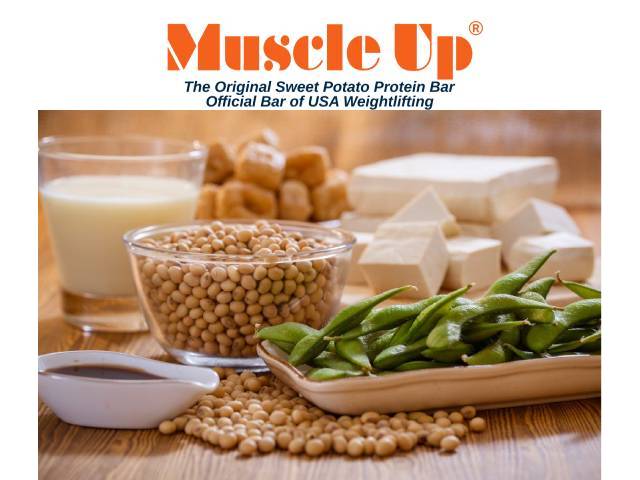
Soy is a popular legume of Asian origin. It is an important source of protein for many people, especially those who follow a vegan or vegetarian diet. Soy is a vegetable food that is also a complete protein. This means that it contains all nine essential amino acids. Soybeans are low in saturated fat and high in protein, vitamin C, and folate. They are a good source of calcium, iron, magnesium, phosphorus, potassium, and thiamin.
However, there is controversy surrounding the benefits and risks of consuming soy.
Some potential downsides include its GMO content, possible estrogen-like effects, and soy foods that are highly processed. Additionally, it is less beneficial, in regards to synthesizing protein for muscle building, than whey protein.
Genetically modified foods are biotechnically changed to increase yields and resistance to herbicides and insects. Some health-food advocates and scientists have concerns with the potential long-term impact from eating genetically modified food. Soy lecithin, a common ingredient in many foods, often contains genetically modified soy. Soy lecithin is found in dietary supplements, ice cream and dairy products, infant formulas, breads, margarine, and other convenience foods such as protein and nutrition bars.
Soy is unique in that it contains a high concentration of isoflavones, a type of plant estrogen (phytoestrogen) that is similar in function to human estrogen but with much weaker effects. Soy isoflavones can bind to estrogen receptors in the body and cause either weak estrogenic or anti-estrogenic activity. Soy phytoestrogens may promote an increased risk of breast cancer in adult women by altering or decreasing natural estrogen, although the direct link to cancer is inconclusive.
The nutritional content of soy products may vary based on how manufacturers have processed them and which ingredients they have added. In general, try to avoid any soy that has gone through extreme processing. This means faux soy “meats” and their ilk, as well as the soy additives in numerous processed foods. Another highly processed food ingredient is soy-protein isolate, a powder made from soybeans that are heated and then exposed to a solvent-extraction process to remove the oils. This process often uses hexane, a known neurotoxin. So stay away from supplements and foods made with soy protein isolate, found in many protein powders and nutrition bars.
Integrative physician Aviva Romm, MD refers to these highly processed foods as “Frankensoy.” “Even when these foods are made from organic, non-GMO beans, highly processed soy foods are not part of a healthy diet,” she says.
https://experiencelife.lifetime.life/article/pros-and-cons-of-eating-soy/
Research shows that soy can help build muscle but may not be the most effective protein choice. Compared to whey and casein proteins, soy protein sits somewhere in the middle as far as muscle protein synthesis goes. One study showed that soy was inferior to whey protein in regards to synthesizing protein for muscle but performed better than casein. https://pubmed.ncbi.nlm.nih.gov/19589961/
https://pubmed.ncbi.nlm.nih.gov/19589961/
https://pubmed.ncbi.nlm.nih.gov/19589961/
According to the Cleveland Clinic, supplementing your diet with soy isoflavone supplements shows no health benefit and should be avoided. Only whole soy foods are recommended at this time.https://my.clevelandclinic.org/health/articles/17491-soy-foods
Here at Muscle Up, we choose to not add any soy to our protein bars. We recognize the possible harmful and/or unknown effects of soy on the body. Our protein of choice is Grass Fed Whey protein, which is one of the best sources of undenatured protein and essential amino acids. We recommend daily protein intake of roughly 1 gram of protein for each pound of body weight.
Each Muscle Up Bar delivers up to 16G grams of grass fed protein, making it a perfect go to snack on a daily basis.


